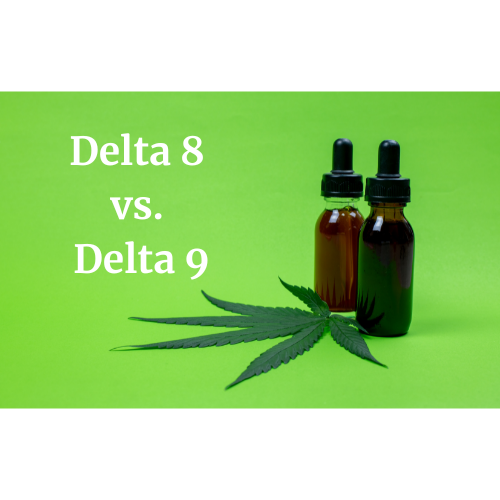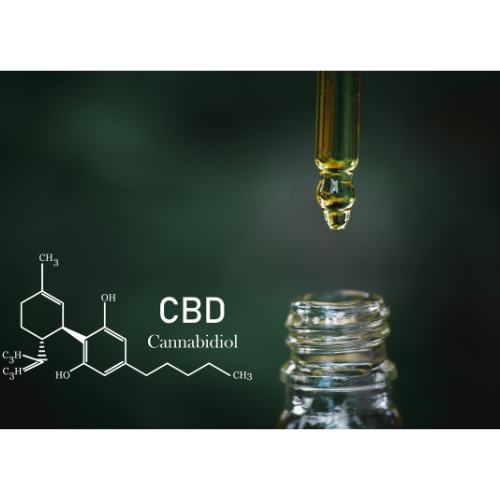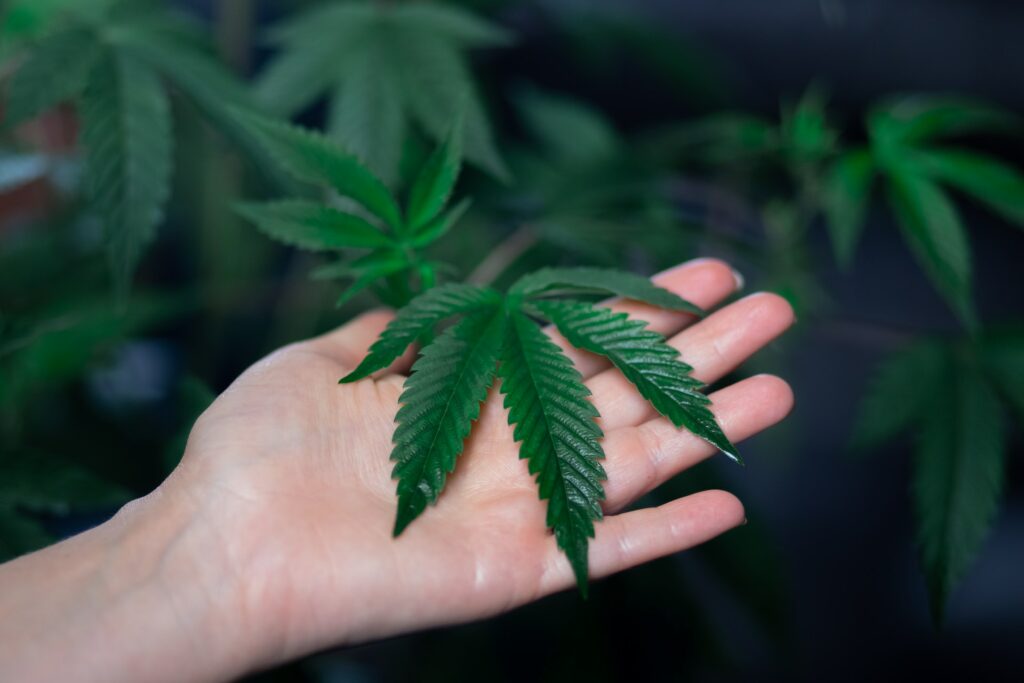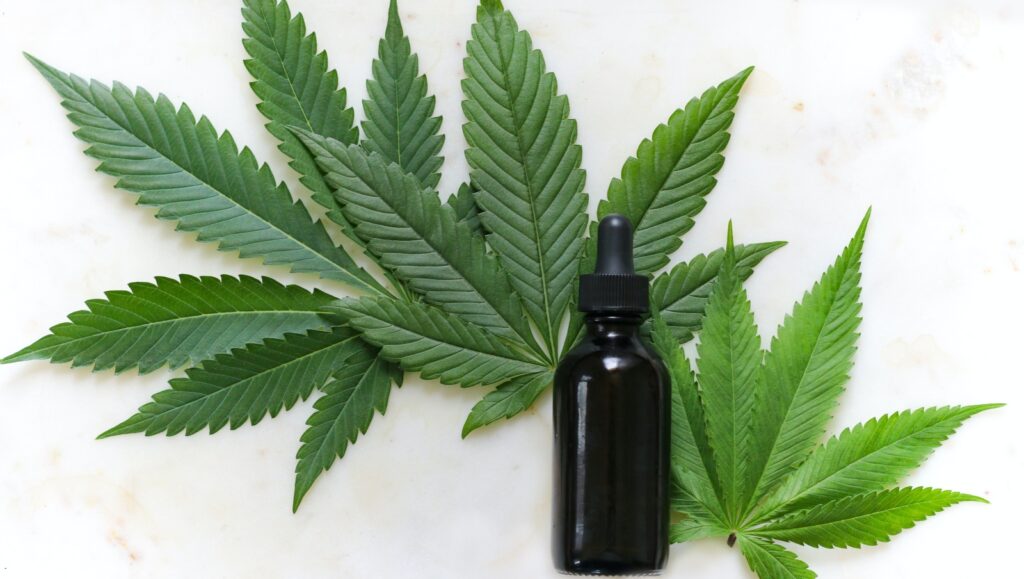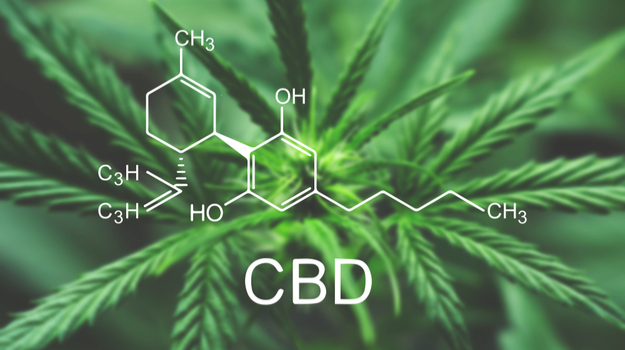Discover the Ultimate Guide to Delta 8 and Delta 9 THC Gummies
Overview of Delta 8 and Delta 9 THC Gummies
When it comes to exploring the world of cannabis, gummies have become an increasingly popular choice among enthusiasts. These delicious and discreet treats offer a convenient way to enjoy the benefits of cannabinoids like Delta 8 THC and Delta 9 THC. In this ultimate guide, we will delve into the fascinating realm of Delta 8 and Delta 9 THC gummies, uncovering their unique properties, effects, and safety considerations.
Before we dive into the specifics of each type of gummy, let’s first understand what Delta 8 and Delta 9 THC actually are. These compounds belong to a larger family of cannabinoids found in the cannabis plant, each with its own distinct characteristics. Delta 8 THC and Delta 9 THC are two of the most well-known and widely studied cannabinoids, and they both offer their own set of benefits and effects.
Throughout this guide, we will explore the differences between Delta 8 and Delta 9 THC gummies, their potential benefits and effects, as well as dosage and consumption tips. Additionally, we will touch upon the legality and safety considerations surrounding these products, ensuring that you have all the information you need to make informed decisions.
So, whether you’re a cannabis connoisseur or a curious newcomer, get ready to embark on a journey into the world of Delta 8 and Delta 9 THC gummies. Let’s uncover the hidden wonders that these delectable treats have to offer and discover how they can enhance your cannabis experience.
Understanding Delta 8 THC
In the world of cannabis, there are various compounds that offer unique effects and benefits. One such compound is Delta 8 THC, which has gained popularity for its potential therapeutic properties. So, what exactly is Delta 8 THC, and what sets it apart from its more well-known counterpart, Delta 9 THC?
What is Delta 8 THC?
Delta 8 THC, short for Delta-8-tetrahydrocannabinol, is a cannabinoid that occurs naturally in the cannabis plant. It is chemically similar to Delta 9 THC, the primary psychoactive compound found in cannabis. However, there is a slight difference in the arrangement of their atoms, which results in distinct effects and characteristics.
Delta 8 THC is known to have a milder psychoactive effect compared to Delta 9 THC, making it an appealing option for those seeking a more relaxed and subtle experience. It interacts with the body’s endocannabinoid system, specifically targeting the CB1 receptors in the brain and central nervous system.
Benefits and Effects
Delta 8 THC offers a range of potential benefits and effects. Many users report feeling a sense of calm and relaxation without the intense high associated with Delta 9 THC. This makes it a popular choice for individuals who want to experience the benefits of THC without feeling overwhelmed or anxious.
Moreover, Delta 8 THC has been studied for its potential anti-nausea and appetite-stimulating properties. It may also help with pain relief, anxiety reduction, and sleep regulation. However, it’s important to note that more research is needed to fully understand the extent of these benefits and the specific conditions that Delta 8 THC may be effective for.
Legality and Safety
When it comes to the legality of Delta 8 THC, it’s a bit of a gray area. While Delta 9 THC is classified as a Schedule I controlled substance federally, Delta 8 THC exists in a legal loophole. It is derived from hemp, which is legal under the 2018 Farm Bill as long as it contains less than 0.3% Delta 9 THC. However, some states have implemented their own regulations regarding Delta 8 THC, so it’s important to familiarize yourself with the laws in your jurisdiction.
In terms of safety, Delta 8 THC is generally considered to be safe when consumed responsibly. However, as with any cannabis product, it’s essential to start with a low dosage and gradually increase as needed. This approach allows you to gauge your tolerance and minimize the risk of adverse effects. If you have any underlying health conditions or are taking medications, it’s always a good idea to consult with a healthcare professional before incorporating Delta 8 THC into your routine.
Understanding Delta 8 THC is the first step in exploring the world of cannabis and its potential benefits. Whether you’re looking for relaxation, pain relief, or a gentle mood boost, Delta 8 THC gummies can be a convenient and enjoyable way to experience the effects of this unique compound. So, if you’re ready to dive deeper into the world of Delta 8 THC gummies, continue reading to discover what sets them apart from other forms of Delta 8 THC and how they can enhance your cannabis experience.
Further reading:
Understanding Delta 9 THC
What is Delta 9 THC?
When it comes to cannabis, the term THC is often thrown around, but what exactly is Delta 9 THC? Well, it’s one of the primary compounds found in the cannabis plant that is responsible for producing the famous psychoactive effects. Delta 9 THC, also known as tetrahydrocannabinol, is the cannabinoid that is most well-known for its ability to induce a euphoric high. This compound interacts with the body’s endocannabinoid system, specifically the CB1 receptors in the brain, to produce its effects.
Benefits and Effects
The benefits and effects of Delta 9 THC are vast and wide-ranging. Many users turn to Delta 9 THC gummies for their potential to provide relaxation, stress relief, and even pain management. The compound is also known to enhance creativity and focus, making it a popular choice among individuals looking to tap into their artistic side or boost productivity. Additionally, Delta 9 THC gummies have been reported to promote a sense of euphoria and happiness, making them a go-to option for those seeking a mood lift.
Legality and Safety
Now, let’s address the topic of legality and safety surrounding Delta 9 THC gummies. The legal status of Delta 9 THC varies from country to country and even within different states. In some regions, it is legal for both medicinal and recreational use, while in others, it may be strictly regulated or even illegal. It’s crucial to familiarize yourself with the laws and regulations in your specific area before purchasing or consuming Delta 9 THC gummies.
When it comes to safety, responsible and informed consumption is key. It’s important to start with a low dosage and gradually increase as needed, allowing your body to acclimate to the effects of Delta 9 THC. Additionally, it’s advisable to consult with a healthcare professional, especially if you have any underlying medical conditions or are currently taking medications. Being aware of any potential interactions or contraindications is essential for your well-being.
In conclusion, Delta 9 THC is a powerful compound found in cannabis that offers a wide array of benefits and effects. Whether you’re seeking relaxation, stress relief, or a creative boost, Delta 9 THC gummies may provide the experience you’re looking for. However, it’s important to understand the legal implications and prioritize safety when incorporating them into your wellness routine. Stay informed, stay responsible, and enjoy the potential benefits of Delta 9 THC gummies in moderation.
For a detailed guide on the best Delta 9 THC gummies available in the market, check out Mr. Mean Green’s article on best delta 9 gummies.
Delta 8 THC Gummies
What are Delta 8 THC gummies?
Delta 8 THC gummies are a delightful and convenient way to experience the benefits of Delta 8 tetrahydrocannabinol (THC). These delectable treats are infused with Delta 8 THC, a cannabinoid derived from hemp plants. Delta 8 THC gummies offer a tantalizing combination of fruity flavors and the potential therapeutic effects of Delta 8 THC.
How are they different from other forms of Delta 8 THC?
While Delta 8 THC is available in various forms such as vape cartridges, tinctures, and edibles, gummies have gained immense popularity due to their ease of use and enjoyable taste. Unlike other forms, Delta 8 THC gummies offer a convenient and discreet way to consume the cannabinoid. They are portable and can be consumed on the go, making them a popular choice for those who prefer a subtle and enjoyable Delta 8 THC experience.
Potential benefits and effects
Delta 8 THC gummies are renowned for their potential therapeutic benefits. Many users report experiencing a relaxing and calming effect after consuming Delta 8 THC gummies. They may help in alleviating stress, promoting a sense of relaxation, and aiding in better sleep. Additionally, Delta 8 THC gummies have been suggested to have potential pain-relieving properties, making them a popular choice among individuals looking for natural alternatives to manage discomfort. However, it’s important to note that individual experiences may vary, and it’s always best to consult with a healthcare professional before incorporating Delta 8 THC gummies into your wellness routine.
Dosage and consumption tips
When it comes to consuming Delta 8 THC gummies, it’s crucial to start with a low dosage and gradually increase as needed. The recommended dosage for Delta 8 THC gummies may vary depending on factors such as tolerance, body weight, and desired effects. It’s advisable to follow the manufacturer’s instructions and guidelines provided on the product packaging. Additionally, it’s essential to allow ample time for the effects to kick in before considering an additional dose. As with any cannabis product, it’s important to consume Delta 8 THC gummies responsibly and be mindful of your own limits. If you have any concerns or questions regarding dosage, it’s always wise to consult with a healthcare professional.
In conclusion, Delta 8 THC gummies offer a delightful and convenient way to experience the potential benefits of Delta 8 THC. With their portability and enjoyable flavors, they have become a preferred choice for individuals seeking a subtle and enjoyable Delta 8 THC experience. However, it’s essential to consume them responsibly and follow the recommended dosage guidelines. Whether you’re looking for relaxation, stress relief, or potential pain management, Delta 8 THC gummies may be a delicious addition to your wellness routine.
Delta 9 THC Gummies
What are Delta 9 THC gummies?
Delta 9 THC gummies are a popular and convenient way to consume tetrahydrocannabinol (THC), the primary psychoactive compound found in cannabis. These gummies are infused with Delta 9 THC, providing users with a tasty and discreet method of enjoying the effects of this compound. Similar to other THC gummies on the market, Delta 9 THC gummies are typically made by infusing a gummy candy base with a Delta 9 THC extract.
How are they different from Delta 8 THC gummies?
While both Delta 8 and Delta 9 THC gummies share the commonality of being infused with THC, they do have distinct differences. The main distinction lies in their chemical structures. Delta 8 THC has a double bond on the eighth carbon atom of its molecular chain, while Delta 9 THC has a double bond on the ninth carbon atom. This slight variation in structure leads to differences in their effects and potency.
In terms of effects, Delta 9 THC is known for its more potent psychoactive properties compared to Delta 8 THC. It is often associated with a stronger euphoric high and a more intense cerebral experience. Delta 9 THC gummies may provide users with a more powerful and immediate effect, making them a preferred choice for those seeking a more pronounced THC experience.
Potential benefits and effects
Delta 9 THC gummies offer a range of potential benefits and effects that make them appealing to different individuals. The effects of Delta 9 THC can vary depending on the individual’s tolerance, dosage, and overall chemistry. Some potential benefits and effects of Delta 9 THC gummies may include:
- Euphoria: Delta 9 THC is known for its ability to induce feelings of euphoria and relaxation. Many users enjoy the pleasurable sensations and heightened mood that Delta 9 THC gummies can provide.
- Pain relief: THC has been recognized for its analgesic properties, and Delta 9 THC gummies may offer potential pain relief for individuals dealing with chronic pain.
- Stress reduction: Delta 9 THC has been reported to help reduce stress and anxiety, promoting a sense of calm and relaxation.
- Enhanced creativity: Some users find that Delta 9 THC gummies can enhance their creativity and provide a fresh perspective on various tasks or artistic endeavors.
Dosage and consumption tips
When it comes to consuming Delta 9 THC gummies, it’s important to start with a low dosage and gradually increase as needed. The potency of these gummies can vary, so it’s crucial to read the product labels and follow the recommended dosage guidelines. It’s always better to start with a small amount and assess your tolerance and sensitivity to the effects before consuming more.
It’s also essential to consume Delta 9 THC gummies responsibly and in a safe environment. If you’re new to THC gummies or have a low tolerance, consider consuming them in a comfortable setting with trusted friends or family members. Remember, the effects of Delta 9 THC can take some time to kick in, so be patient and avoid overconsumption.
To ensure a positive experience, it’s advisable to consult with a healthcare professional before incorporating Delta 9 THC gummies into your routine, especially if you have any underlying health conditions or are taking medications that may interact with THC.
In conclusion, Delta 9 THC gummies offer a potent and enjoyable way to experience the effects of THC. With their unique benefits and effects, they provide an enticing option for individuals seeking a more intense and euphoric THC experience. However, it’s important to consume them responsibly, starting with a low dosage and being mindful of their potential effects.
Safety and Legality Considerations
When it comes to exploring the world of THC gummies, it’s important to consider both safety and legality. Understanding the legal status of Delta 8 and Delta 9 THC gummies will ensure you stay on the right side of the law, while taking safety precautions will help you have a positive and enjoyable experience.
Legal status of Delta 8 and Delta 9 THC gummies
The legal landscape surrounding THC gummies can be complex and varies from one jurisdiction to another. While Delta 9 THC is classified as a Schedule I controlled substance in many countries, including the United States, the legal status of Delta 8 THC is a bit more nuanced.
In the United States, the Farm Bill of 2018 legalized hemp and hemp-derived products, as long as they contain no more than 0.3% Delta 9 THC on a dry weight basis. This legislation opened the door for the production and sale of Delta 8 THC products, including gummies, which are derived from hemp.
It is worth noting that some states have implemented their own regulations regarding the sale and use of Delta 8 THC products. Therefore, it is essential to familiarize yourself with the specific laws in your state to ensure compliance.
On the other hand, Delta 9 THC gummies, which contain higher levels of the psychoactive compound, are subject to stricter regulations. In states where Delta 9 THC is legal for recreational or medicinal use, you may find a wider range of options available. However, in states where Delta 9 THC is still prohibited, the sale and consumption of Delta 9 THC gummies may carry legal consequences.
Safety precautions when consuming THC gummies
While THC gummies can offer a delightful way to experience the benefits of cannabinoids, it’s important to consume them responsibly and take necessary safety precautions.
1. Start low and go slow: When trying THC gummies for the first time or if you’re new to cannabis, it’s crucial to start with a low dose. This allows you to gauge your body’s reaction and gradually increase your dosage until you find your ideal level of comfort.
2. Know your limits: THC affects individuals differently, and it’s essential to be aware of your own tolerance and limits. Remember, what works for one person may not work the same for another. Listen to your body and adjust your dosage accordingly.
3. Wait before re-dosing: THC gummies can take some time to kick in, so it’s important to be patient before taking another dose. It’s better to wait and see how you feel after the initial dose before deciding if you need more.
4. Stay hydrated: THC can cause dry mouth, so make sure to drink plenty of water while consuming THC gummies. Staying hydrated not only helps combat dry mouth but also contributes to overall well-being.
5. Store securely: Keep your THC gummies safely stored away from children and pets. Ensure they are stored in a cool, dry place to maintain their freshness and potency.
By following these safety precautions, you can have a more enjoyable and worry-free experience with THC gummies. Remember, responsible consumption is key to ensuring a positive outcome.
In the next section, we will explore the world of Delta 8 THC gummies in more detail, including what sets them apart from other forms of Delta 8 THC, their potential benefits and effects, as well as dosage and consumption tips. Stay tuned!
To learn more about the legal status of THC gummies, check out our article on Delta 8 vs Delta 9 THC gummies. And if you want to explore the best options available, don’t miss our guide on the best delta 8 gummies and best delta 9 gummies.
Conclusion
In conclusion, the world of THC gummies offers a fascinating array of options for those looking to explore the benefits and effects of Delta 8 and Delta 9 THC. Whether you’re seeking relaxation, pain relief, stress reduction, or a boost in creativity, these gummies can be a delightful and convenient way to indulge.
By now, you have a clear understanding of what Delta 8 and Delta 9 THC gummies are and how they differ from each other. We’ve explored the potential benefits and effects of both types, and we’ve provided dosage and consumption tips to ensure a safe and enjoyable experience.
It’s important to remember that while Delta 8 and Delta 9 THC gummies may offer unique effects and benefits, it’s crucial to consider the legality and safety aspects. Always check the legal status of these gummies in your area and take necessary precautions when consuming them.
If you’re interested in trying Delta 8 or Delta 9 THC gummies, be sure to explore our best delta 8 gummies and best delta 9 gummies recommendations for high-quality options. Additionally, if you want to delve deeper into the differences between Delta 8 and Delta 9 THC gummies, our article on delta 8 vs delta 9 gummies provides an in-depth analysis.
Remember, always consume THC gummies responsibly and in moderation. If you have any concerns or questions, consult with a healthcare professional who can provide personalized advice based on your specific needs and circumstances.
So go ahead, embark on your THC gummy journey and discover the wonders that Delta 8 and Delta 9 have to offer. Indulge in the benefits, embrace the effects, and savor the experience. Happy exploring!

